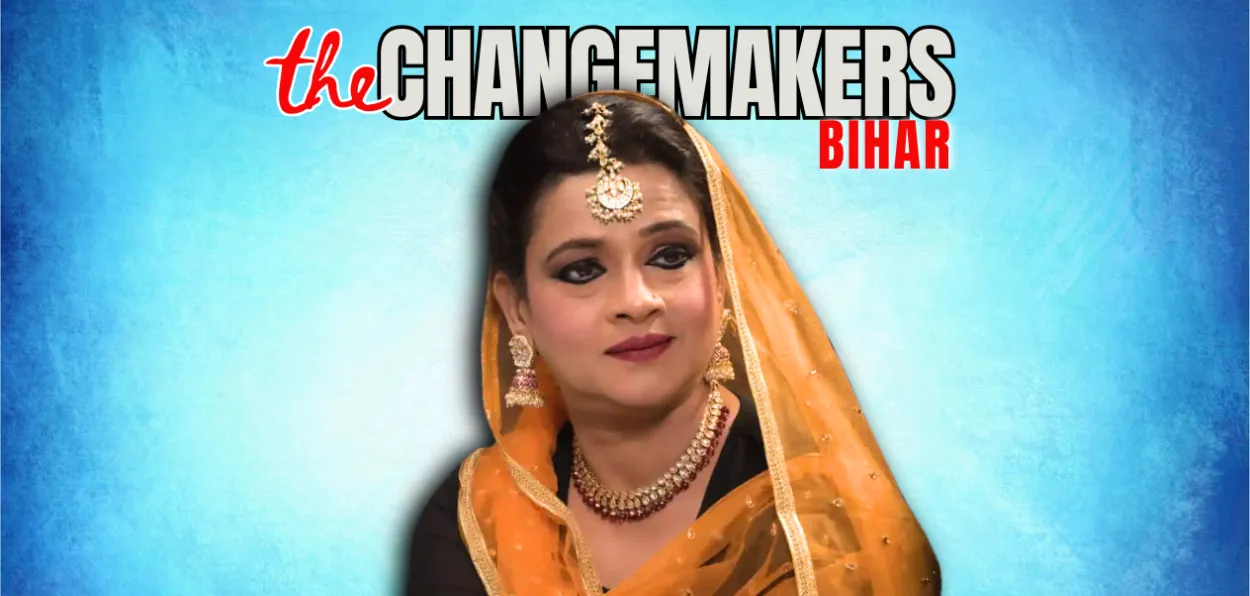
Onika Maheshwari/New Delhi
Rani Khanam was born into a conservative family where dancing and singing were unacceptable. Yet she rose to become one of the most respected exponents of Kathak in the world.
Her journey from quiet resistance to global recognition is a remarkable story of courage, artistry, and self-belief.
Ra, who hails from Gopalgunj, Bihar, is not only celebrated for her command over Kathak but also for using the classical art form to empower the less privileged.
Through her performances, she has championed women's empowerment and highlighted critical social issues.
.png) Rani Khanam during a performance
Rani Khanam during a performance
She is the only Indian Muslim classical dancer known for creating choreographies based on Islamic verses and the poetry of Sufi mystics.
With her dance troupe, she has performed in countries such as the UK, Spain, France, South Korea, Malaysia, and Algeria.
She is the founder of the Aamad Performing Arts Center, established in 1996.
Today, it is recognized as one of India’s premier performing arts institutions. Under her leadership, Aamad has staged numerous performances that explore themes of women’s rights, gender equality, HIV/AIDS awareness, and disability inclusion.
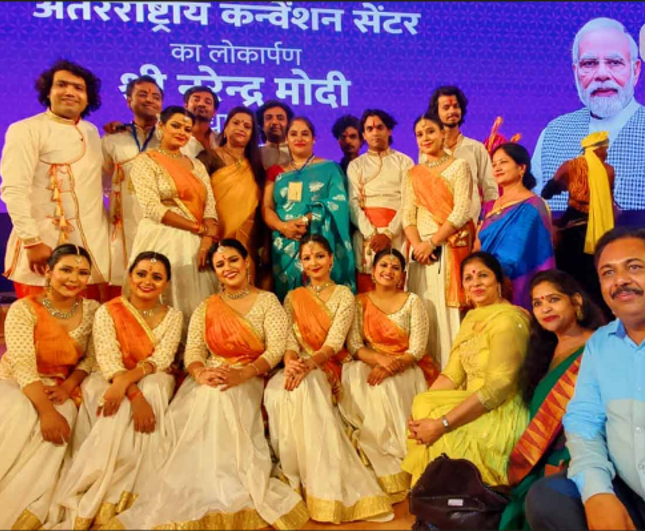 Rani Khanum with her troupe at the inauguration of Bharat Mandapam in New delhi
Rani Khanum with her troupe at the inauguration of Bharat Mandapam in New delhi
The center is recognized by the Ministry of Culture, the Sangeet Natak Akademi, and is listed with the Indian Council for Cultural Relations (ICCR). It collaborates with Kathak Kendra, India’s national Kathak institute, to promote inclusive and accessible arts education.
Rani's story began in Gopalganj, Bihar, where she fell in love with Kathak as a child. She practiced in secret for years, hiding her ghungroos, harmonium, and tabla to keep her passion hidden from her family.
When her family broached the subject of her marriage, Rani chose to pursue her dream instead of conforming to tradition. While her family did not overtly stop her, the weight of societal expectations and internal conflicts loomed large.
After completing her early education in Muzaffarpur, she moved to Delhi in the third grade. Her natural talent and deep connection to music and movement became evident early on.
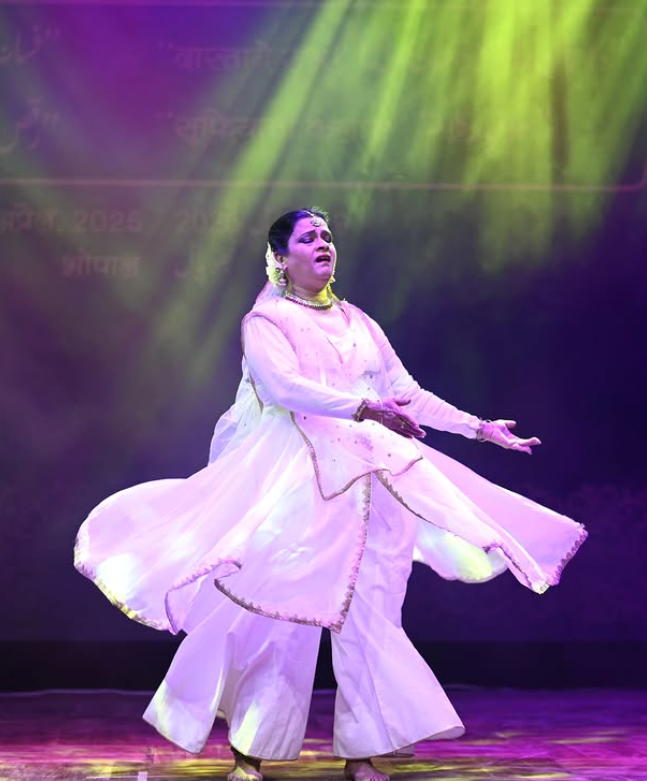 Rani Khanam performing for Doordarshan
Rani Khanam performing for Doordarshan
She began her formal Kathak training under Watan Khan Sahab in 1978 and later studied with Rewa Vidyarthi and the legendary Pandit Birju Maharaj. Her reverence for the guru-shishya tradition remains a central pillar of her artistic philosophy.
Over the years, Rani Khanam has built a unique artistic identity. As a choreographer and performer, she has broken new ground in Indian classical dance.
Her work with Aamad has touched the lives of over two million people through performances, workshops, festivals, and training programs.
Aamad provides professional training in dance and music to young artists of all abilities, many of whom come from economically disadvantaged backgrounds and receive scholarships to pursue their dreams. The center also creates employment opportunities for physically-challenged artists, women, and marginalized communities.
 Rani Khanam with Aamad dancers
Rani Khanam with Aamad dancers
Some of Rani’s most impactful productions include interpretations of Sufi themes, performances by differently-abled artists in wheelchairs, and choreographies advocating for the rights of Muslim women.
These works have been performed at prestigious venues and festivals, globally. Her troupe's largest international performance took place in Kuala Lumpur, attended by Malaysia’s King, Queen, and Prime Minister.
In London, her ensemble took part in the ‘Salam’ International Islamic Arts Festival alongside renowned global Sufi musicians and performers.
Other notable festivals include Namaste France, the Asia Traditional Song and Dance Festival in South Korea, the Tropical Dance Festival in the Netherlands, and Erasing Borders in New York.
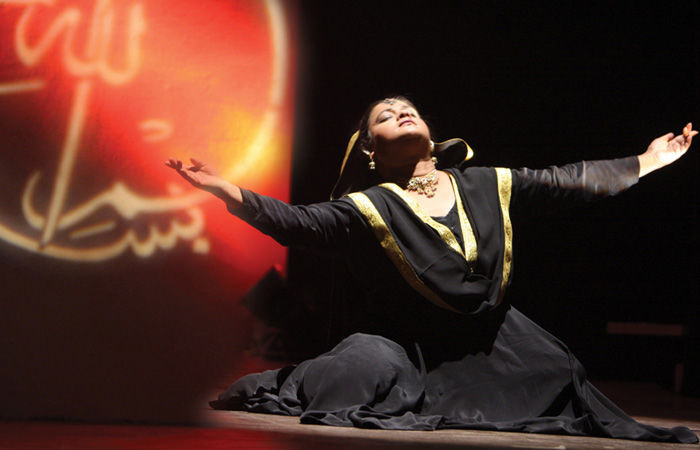 Rani Khanam performing abroad
Rani Khanam performing abroad
The group has also represented India at cultural events across Canada, Australia, Japan, Singapore, the Middle East, Central Asia, and North Africa.
Rani has collaborated with Sufi musicians from Turkey, Cairo, Bosnia, and Morocco. Her spiritual understanding of Sufism is deeply personal.
She believes it is a sacred, inward path—like Sanatan Dharma—a way of life rather than a religion or performance style. While she incorporates Islamic philosophy into Kathak, she does not subscribe to the term “Sufi Kathak,” insisting that Sufism is not a dance form but a soulful expression.
Her ability to fuse these elements has allowed her to create a new vocabulary in Kathak, one that expands its expressive potential while honoring its classical roots.
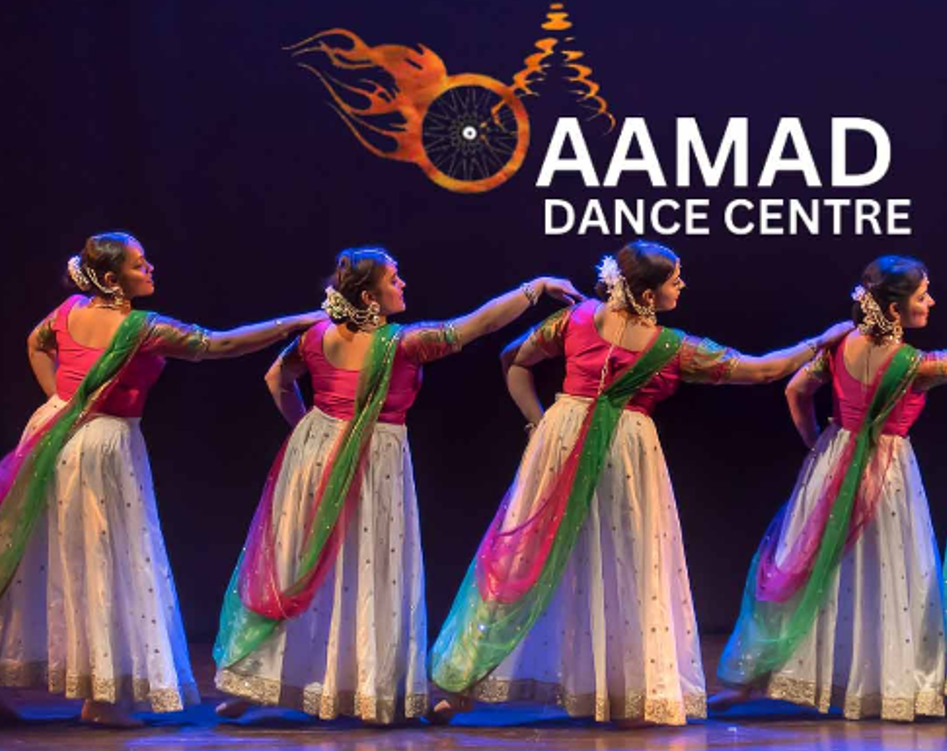 Rani Khanam's disciples of Aaman Dance center performing a Kathak dance
Rani Khanam's disciples of Aaman Dance center performing a Kathak dance
Rani’s family follows the Chishti Sufi order. Her experiences attending Sufi gatherings, Qawwali performances, and Sama mehfils where music leads to spiritual ecstasy have deeply influenced her artistic vision. Her choreographic interpretations are meditative, invoking a journey of the soul seeking divine union through movement and rhythm.
Over the years, her work has received appreciation from across society, from ordinary people to national leaders. Her choreography has been praised by the President, Vice President, Prime Minister, Chief Ministers, Governors, and other dignitaries.
She has choreographed more than 200 dance pieces covering traditional, contemporary, and issue-based themes. Indian and international art critics consistently regard her as one of the most innovative and expressive Kathak artists of her generation. She is listed in the “Outstanding Category” by the Indian Council for Cultural Relations and is recognized as a “Top Category” artist by Delhi Doordarshan.
Rani Khanam has received several prestigious awards for her path-breaking work, including the Women Achievement Award (2022), the National Unity Award (2017), the L’Oréal Femina Women Award (2014), and the National Women Excellence Award (2012).
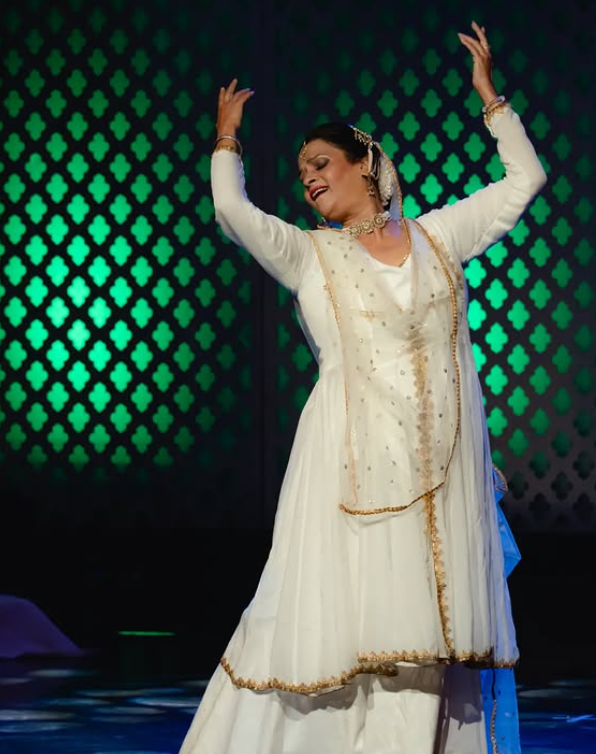 Rani Khanam dancing
Rani Khanam dancing
She was also awarded the World Dance and Islam Fellowship by the Asian Cultural Council in New York in 2006, as well as the Senior Fellowship from the Ministry of Culture and the India Foundation’s Outstanding Kathak Dancer Award in 1991.
For Rani, Kathak is not just a performance art but a deeply spiritual journey. Her work speaks of inner devotion, expressing the timeless dance between the soul and the divine.
Through her dance, she has built bridges between classical tradition and contemporary relevance, between spiritual depth and artistic innovation, and between India’s diverse religious and cultural identities.
ALSO READ: Mohammad Ibrahim’s inspirational journey from Motihari to global business arena
Rani Khanam’s legacy lies not only in her graceful movements but in her powerful message: that art can transcend barriers, challenge norms, and become a force for inclusion, awareness, and unity.
